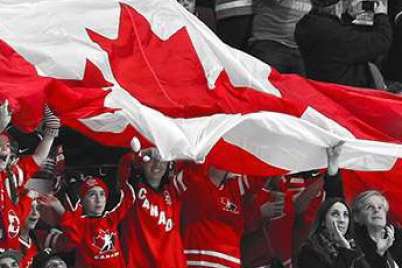
Will Canadian parents speak up for quality hockey programs?
One thing is clear after the Sochi Winter Olympics: In ice hockey, Canada rules! But there is still a question as to whether or not Canada’s dominance can continue. Some have doubts, especially if you look at Canada’s performance at the recent World Junior Championship.
The World Juniors are a good indicator of how Canada’s best young players (17–19) compare to other nations. The fact that Canada hasn’t won gold since 2009, and hasn’t come home without any medals of any kind for the last two years, serves notice that other hockey nations are catching up.
Many hockey experts, including Hockey Canada, believe we need to improve how we develop young hockey players.
Recently I suggested that we need a “new normal” in Canadian hockey: develop physical and intense players as we have always done, but also with ample skills.
I would also add that young Canadian hockey players deserve to develop within a system that will insure they grow into complete athletes and that they don’t burn out and drop out of the game at 14. Developing complete athletes and reducing dropout is a central aim of Hockey Canada’s long-term player development approach.
It’s time for the quiet majority to speak up
Since my “new normal” article was published, numerous parents, coaches, and other hockey people have told me about the many good initiatives that are taking place in minor hockey in alignment with this vision.
And this is the revelation that pleases me the most: there are many who believe in the new normal, and they are making it a reality in rinks across Canada.
I don’t have statistics, but I have an intuition that there are many more who believe in a healthier and sound approach to hockey development. It is also my intuition that these parents are part of a “quiet majority” that typically remains silent rather than confront those who promote an antiquated game.
I know. I have been that parent. With a pit in my stomach, I can recall several minor hockey meetings during which I bit my tongue. Or games where I had to tell my atom players (10 years old) not to retaliate to the other team’s aggressive tactics – but to stay calm and respond with skills and goals.
Without parents there is no minor hockey
What if the coaches and parents who believe in the new normal were to speak up? What if they were to become more vocal within our associations, leagues, and provincial chapters?
Canadian minor hockey might be transformed for the better.
Without parents there is no minor hockey. Parents volunteer as coaches, managers, and league administrators. Parents are in a position to improve the game from the grassroots up.
Maybe it’s time for the quiet majority to speak up with more energy. Are you ready to make the “new normal” a reality?
Photo © Laura Nawrocik






50 games… wow. That is a lot for an atom team and really out of whack with what experts like Hockey Canada know players that age need.
That is why AfL does what it does. Our belief is that leagues are lead by parents and it is parents that will change things. From my experience, parents base their decisions on what they think is best for kids and obviously the parents who manage your league believe games, lot’s of them, are good for their kids.
But things are changing. Hockey Canada has partnered with AfL to help parents understand the importance of the Long Term Player Development model (a.k.a. the new normal). Provincial chapters are beginning to listen and the word about physical literacy being good for kids, but also essential in developing great and complete hockey players.
On that note, I have been invited to speak at Hockey BC AGM about the importance of the LTPD and Physical Literacy. Who knows, maybe someone from your league will be in attendance and will begin to share the message. As we say in the article, it’s the quiet majority we need to engage…
This year our Atom House program had us playing close to 50 games (league, tournament, playoffs), and we were only getting practice and skills once every two weeks. The ratio was way off, but PCAHA is not interested in messing with the formula too much. Kids need more practice time to develop, and the more they develop, the more they will enjoy the game. During a game, a player only touches the puck for about 1 minute if that. In Sweden, they don’t play rep until later, and focus on skills early on, I think this is something that needs to be looked at, but try convicing the PCAHA to emphasize skills over quantity of games.